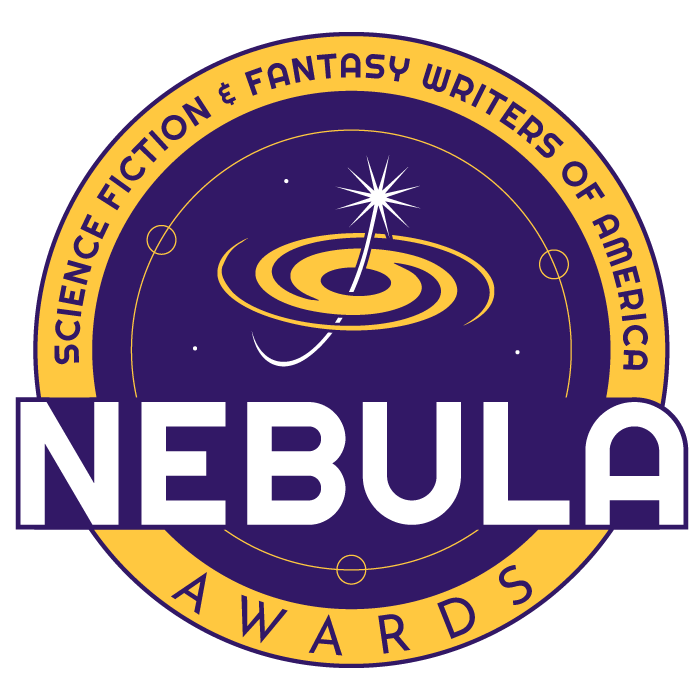After getting to know Rick Novy online through CodexWriters.com, I met him in person at the 2006 Nebula Awards Weekend in Tempe, Arizona. He was personally responsible for my meeting Harlan Ellison and the ensuing “Harlan story.” Rick shares my love of puns, and like me, he’s been published in InterGalactic Medicine Show. Rick edited the recent anthology 2020 Visions. Here are my questions for Rick and his answers:
1. How did you end up editing an anthology of stories set only ten years in the future?
This is one of those cases where the whole idea formed around the title. Early in 2010, I realized that 2020 was exactly 10 years out, and the window of opportunity to do science fiction with this delicious double-entendre title would quickly close. I couldn’t let such a perfect title and timing pass me by, so I contacted Christopher Fletcher, who edits M-Brane SF and has a fledgling small press. I had guest-edited issue #12 of M-Brane SF and it turned out to be one of the more popular issues, so he got on board very quickly.
2. Can you give us a taste of what some of these speculative futures are like?
We’ve got everything from sentient robots to new fad diets. Dystopian and hopeful. Dark and light. The book has a good mix with something for every taste.
3. Recently, you’ve been doing a lot of work with ebooks. What do you think publishing will look like in 2020?
Certainly electronic publishing is going to continue gaining in importantance, but print publishing isn’t going away. That said, I think we are starting to see the beginnings of the true storm that has been on the horizon since Amazon incorporated. The traditional publishing model has been broken for many decades, and big box stores have pushed most of the little guys out of business.
Now we are witnessing the liquidation of the vast majority of Borders locations. We recently witnessed Terrill Lankford walk away from a six-figure advance because the terms his publisher offered for the electronic rights were absurdly lopsided against him. Publishers have been less than honest about how much work goes into creating electronic books once the paper copy is finished. Take away the transportation, duplication and storage costs of physical inventory, the ebook is almost free to create once the paper copy is done. I have converted a short story final manuscript with cover art I created into PDF, EPUB and MOBI formats in under an hour, and most of it by hand. But that was a year ago. Now there are tools now to do a lot more of that for you, and faster. Scrivner 2.0 for Mac and Atlantis Word Processor for Windows both export decent EPUB files that need only a little tweaking.
There is still a lot of fear in the industry. Publishers are realizing that savvy authors don’t need them to be successful. Agents are realizing that authors are keeping that 15% and wonder if they are still relevant. Authors are questioning whether they would be better off on their own, they haven’t forgotten that agents used to take 10%. But a lot of writers are not tech savvy and the change for them is terrifying, too. Some publishers and agents are building business models to take advantage of that situation. Some are doing what should be hourly labor for a lifetime percentage of the sales. It’s absurd. Heavy emphesis on the word some. There are also honest publishers and agents trying to figure out their proper role in this new landscape. I don’t know how the gears will align in the end, but clearly, though, things are not going back the way they were.
So what will the publishing industry look like in 2020? I think we will see a resurgence of small bookstores, though it may not have traction by 2020. I think we will see at least one major publisher collapse under its own weight. I think we will continue hearing about indie authors doing just fine on their own.
But I also see some publishers surviving, sharing honestly with writers, and providing print books for the people who want that. But it’s going to be the publishers who figure it out who survive.
The others will either change or perish. But I also see print books doing similar to vinyl record albums. People like their ipods, but they like the analog sound, too. There’s room for print and digital to coexist because people still like reading from paper.
Change is happening quickly, but in some ways, it’s like a slow-motion train wreck. I think there will still be a few wheels on the tracks in 2020, but they will derail eventually. When the dust settles, I think the writers who work the best parts of both sides will win. Use traditional publishing when it makes sense, and go indie when it makes sense. The proportion will be very much a function of the individual in question.
4. What’s your favorite story you’ve written, and where can readers go to read it?
That’s a tough question to answer. I tend to write what I like to read, so I don’t really have a favorite. But, if you put my back against a wall, I’d have to say the “How to…” series where I use myself as the point of view character and strange things happen whenver Didier Forneau comes to town. Didier is a French guy who claims he is an alien, and he forces me to save the universe against my will and against my better judgement. They are humorous stories and just plain fun to write. All three stories are packaged together and available on my website or from Amazon. But, I always have a short story available for free on my website in the free area. It’s always available in PDF, EPUB and MOBI formats. My free stuff page is here: http://www.ricknovy.com/catalog/free-stuff/ I put new stories in the free area before they move into the shoppe, so somebody who likes my short fiction can collect a lot of it for free by checking back every month or two and snagging it while it’s free.
5. Besides 2020 Visions, are there any books, stories, websites, etc., you’d like people to know about?
I have opted to go the independent route with my long fiction for the time being, and I am getting ready to release my first novel, Neanderthal Swan Song, electronically in the very near future. In the story, a fully-intact Neanderthal body is discovered in northern Greenland. A tissue sample is used to clone the Neanderthal, and the novel is his story. Interestingly, Neanderthals never migrated as far as Greenland, but I needed a place where I could plausibly give minor figures significant power over national politics. There is a back-story that explains how the Neanderthal body came to be in Greenland, but that material was removed from the novel due to length. At some point I will also make that back-story available, but it needs some serious rewriting first.



